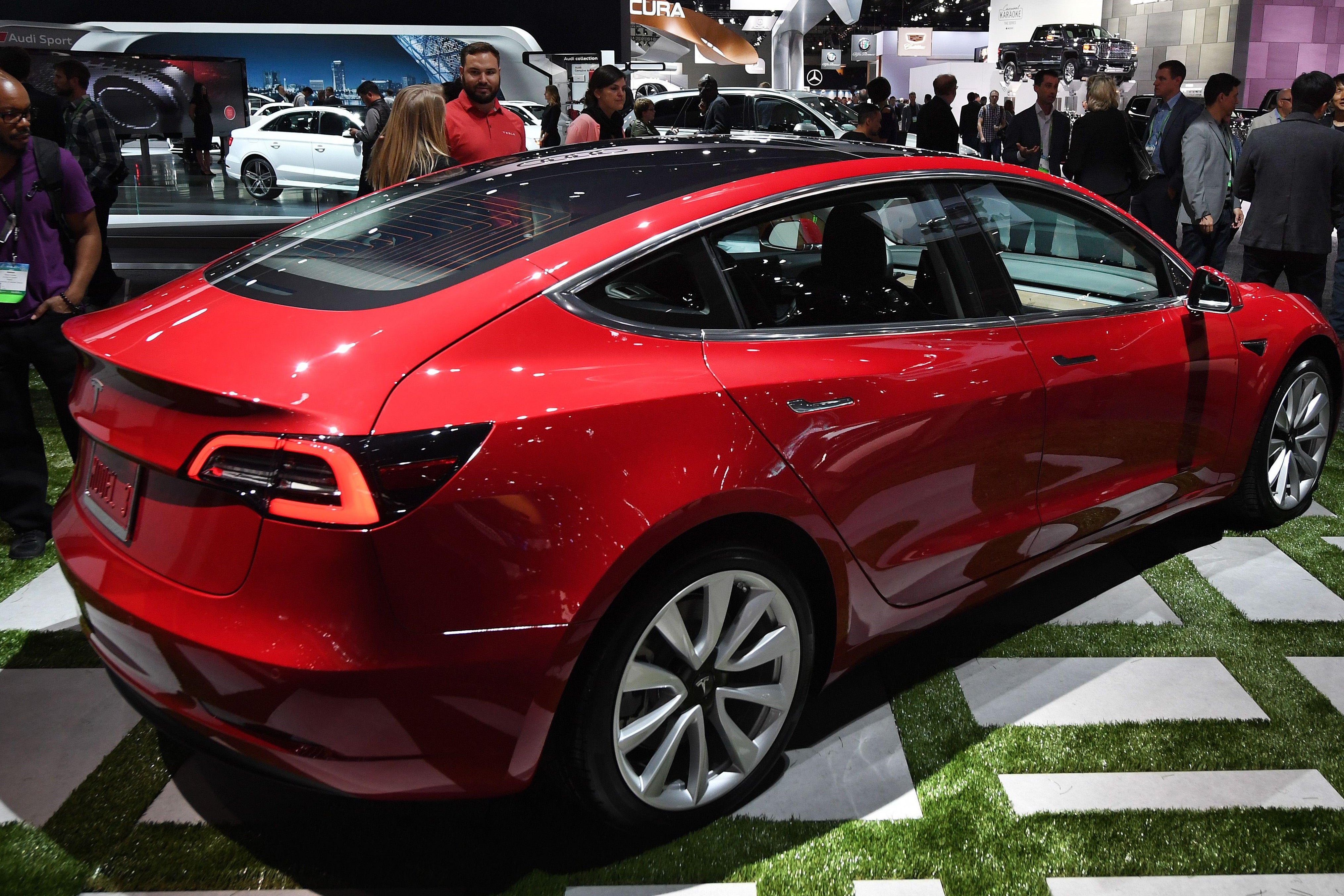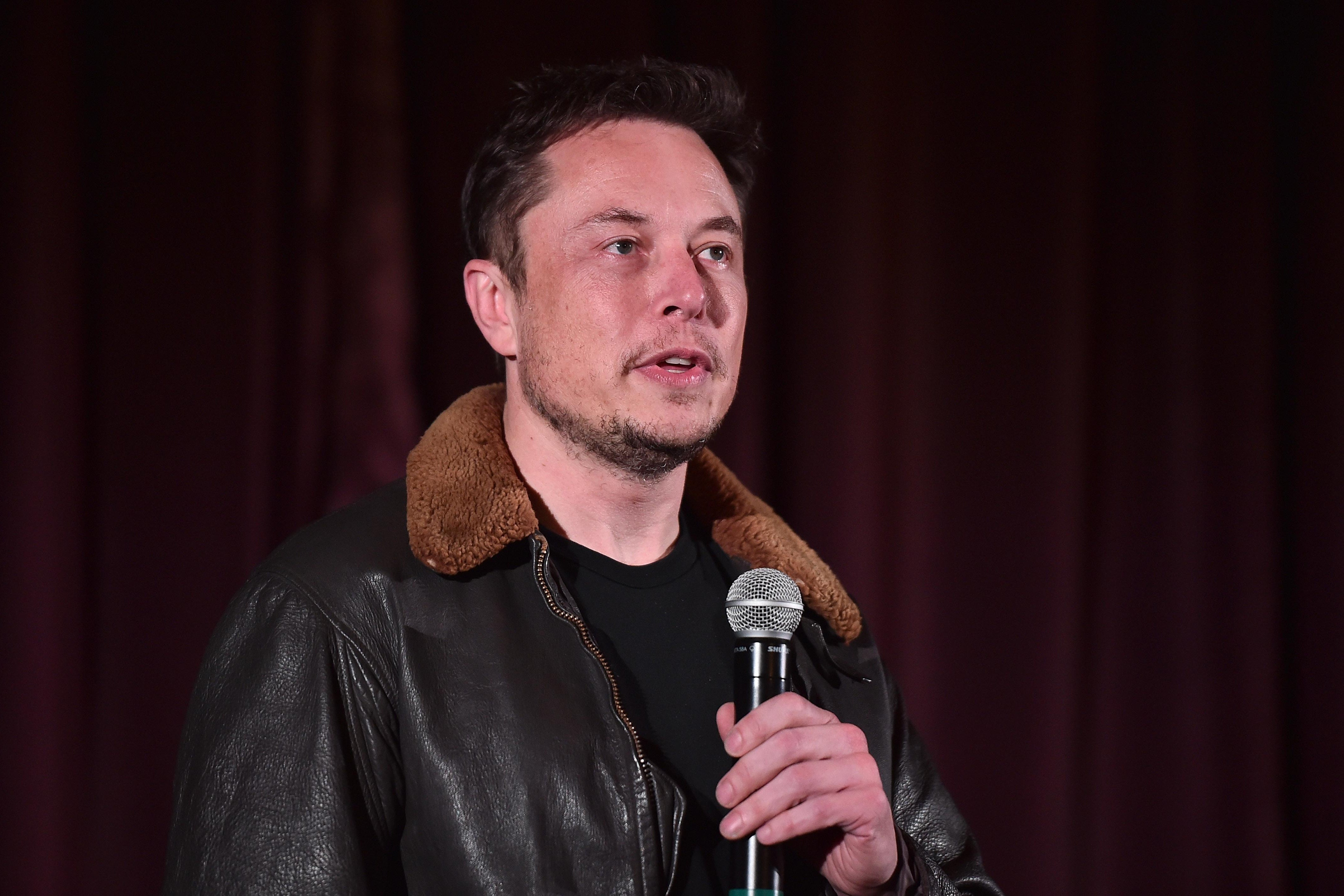The electric vehicle–maker Tesla this week is reacting to a damning story about its factory-safety practices by calling it, essentially, fake news.
On Monday, the investigative reporting outlet Reveal documented what appears to be a pattern of underreporting injuries and downplaying workers’ safety concerns at Tesla’s factory in Fremont, California. The report belies Tesla’s claim that it has dramatically improved workplace safety practices, amid allegations that it has prioritized speed over caution as it sprints to meet aggressive production deadlines on its next car.
The Model 3 is a make-or-break vehicle for Tesla—the long-awaited “affordable” electric car that it hopes will kickstart a global shift from internal combustion engines to battery power. But the company has fallen behind on its production promises and faces a cash crunch that has pushed its stock price down.
All of which might seem to help explain why the company might be cutting some corners on the assembly line. The Reveal story, which is based on numerous sources within the company as well as ex-employees and leaked internal documents, depicts a workplace where the whims of CEO Elon Musk are invoked to override complaints about working conditions. For instance, a former Tesla safety manager said the factory floor lacks yellow safety markings because Musk doesn’t like the color yellow. The story also finds that serious employee health issues, such as repetitive stress injuries, or the debilitating headaches suffered by an assembly line worker from inhaling toxic glue, were never reported on the injury logs that car companies are required by law to keep. Even with the alleged underreporting, Tesla recorded 722 injuries last year, and its rate of serious injuries was 30 percent above the previous year’s industry average.

Most companies would respond to such an exhaustively researched and damning article by assuring the public that they take such claims seriously and pledging to look into them. But not Tesla. In a remarkable statement Monday evening, the company essentially called the report a pack of lies. Not only that, it dismissed Reveal as an “extremist organization” bent on tarring Tesla’s reputation with an “ideologically motivated” “disinformation campaign.”
That seems rather unlikely: Reveal is a project of the nonprofit Center for Investigative Reporting, and its radio program airs on hundreds of NPR affiliates across the country. It’s funded largely by nonpartisan sources such as the Bill and Melinda Gates Foundation, the David and Lucile Packard Foundation, and the Ford Foundation. In an ironic coincidence, Reveal was nominated for a Pulitzer Prize for another story on the same day Tesla accused it of being a fringe outlet.
Tesla also accused Reveal’s reporters of persistently contacting its employees at their homes and via social media—a practice that’s known in the journalism industry as, well, journalism.
As for Reveal’s claims of injuries being underreported, Tesla wrote, “Their assessment reflects a lack of understanding about how injury reporting works.” The company acknowledged that it sometimes declines to report injuries that employees report as workplace-related, because it deems them “personal” instead after reviewing the specifics with a medical professional. “This is not unusual to Tesla and is common across injuries,” the company says. (In a Twitter rebuttal, Reveal noted that Tesla was required by law to report the fume-inhalation injury, because the victim was prescribed pain medication for it.)
Tesla has never taken criticism particularly well. It famously clashed in 2013 with the New York Times over a negative early review of the Model S, releasing surveillance data collected by the car in a bid to discredit the reviewer’s claims. (Verdict: inconclusive.) Long before the term fake news gained popular currency, Musk tweeted that the New York Times story was “fake.”
Tweets aside, Tesla’s clash with the Times was mostly a case of fighting allegations with data, in an appeal to people’s rationality. The tone the company is taking now borders on hysterical, and it appeals to people’s reflexive mistrust of the media in a way that feels awfully familiar in the Trump era. And it’s becoming a pattern, as the car blog Jalopnik points out. Tesla responded similarly to a story last year about racial discrimination—and an effort to pay off the victim to keep it quiet—by the Guardian, attacking the newspaper for a “complete lack of journalistic integrity.” It has also attacked the integrity of the Wall Street Journal, not exactly a bastion of anti-corporate or pro-union ideology. (Jalopnik’s full post is worth reading.)
Musk seems particularly prone to lash out at the press when his company is under the greatest pressure. It’s reminiscent of Trump’s tactic of venting at the media whenever the Mueller investigation hits close to home. Musk is making the case that his critics are fundamentally untrustworthy liars—positioning himself, and Tesla’s PR arm (which has always been an extension of his personal voice), as the one true messiah that the faithful can turn to for legitimate information. It doesn’t hurt that Musk, like Trump, has a personal Twitter following that dwarfs that of even well-established media outlets.
Is it possible that there’s something to all these investigations into working conditions at a company where the CEO brags about sleeping on the factory floor and just ordered the factory to start running 24/7 in a frantic push to double production within the next two months? Absolutely not, says Tesla: It’s all fabricated and everything is fine.
Elon Musk genuinely thinks he’s saving the world—or the human species, to be more precise—and to be fair, he has a more legitimate claim to that than most other puffed-up Silicon Valley entrepreneurs. But there are more and more signs that his high-minded ends are being used to justify some shady means. And his company’s over-the-top reaction to criticism suggests that’s not going to change anytime soon.
